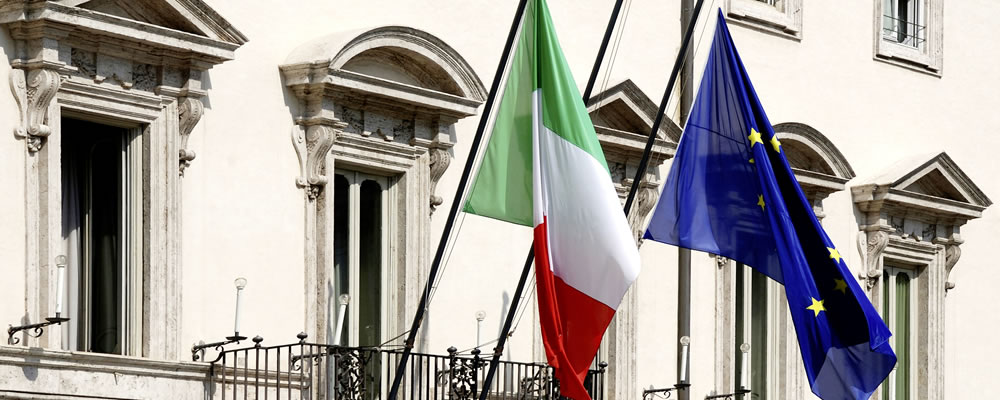Pound to Euro Exchange Rate Falls to Week’s Opening Levels as Euro Recovers
A lack of strong domestic support in Pound (GBP) trade this week has left the Pound Sterling to Euro (GBP/EUR) exchange rate reacting largely Eurozone data and political developments this week. As the Euro (EUR) recovered, the pair lost most of its weekly gains.
Since opening this week at the level of 1.1410, GBP/EUR has fluctuated between lows of 1.1371 and highs of 1.1495. Wednesday’s high was the best level since mid-April.
Wednesday saw investors reassess Italy’s political situation, and developments in the nation have left investors less anxious about its political future.
This, as well as stronger-than-expected Eurozone inflation data on Thursday, pushed GBP/EUR back down from its monthly high to trend closer to the week’s opening levels again.
While Britain’s latest consumer confidence report was a little better than forecast, it ultimately had little impact on the Pound’s strength versus a recovering Euro.
Pound (GBP) Exchange Rate Losses Limited by Decent UK Consumer Confidence Survey
The Pound was unable to hold its best levels against the Euro on Wednesday, but GBP/EUR was at least able to hold above its weekly lows thanks to the publication of a better-than-expected UK consumer confidence report.
Gfk’s UK consumer confidence survey from May was forecast to improve just slightly, from -9 to -8, but the figure instead lightened to -7.
Economists from Gfk noted that UK consumers were still generally broadly concerned about the domestic economy though, and there are few signs of this changing any time soon.
This news made the Pound a little more appealing, but as Britain’s economic outlook is still weak overall. Investors also remain uncertain on whether or not the Bank of England (BoE) will tighten UK monetary policy at all this year.
Other UK data has been persistently underwhelming. Thursday’s other UK data included Nationwide’s May house prices report, which fell short of expectations and came in at just 2.4% year-on-year.
According to Nationwide Chief Economist Robert Gardner:
‘There are few signs of an imminent change,
Surveyors continue to report subdued levels of new buyer enquiries, while the supply of properties on the market remains more of a trickle than a torrent.’
Euro (EUR) Exchange Rates Recover as Italian Political Jitters Ease
Markets have become less anxious about the possibility of Euroscepticism taking hold in Italian politics since yesterday, as economists noted that Italian voters generally did not want to leave the Eurozone and Italy may yet be able to avoid another election.
Italy’s populist coalition between the League party and the 5-Star Movement party appeared open to further attempts to form a government, despite the coalition appearing to collapse over the weekend.
The possibility that a permanent government could be formed now, rather than another election being necessary in the coming year, has set markets at ease somewhat.
The Euro is still much lower this month however, as concerns about the populist coalition remain.
Thu Lan Nguyen from Commerzbank said:
‘But the markets are likely to remain in thrall to the political crisis in Italy. Euro investors should therefore remain vigilant,’
May’s Eurozone inflation projection report bolstered Euro support further on Thursday.
Not only was the overall yearly inflation rate bolstered from 1.2% to 1.9% thanks to higher oil prices, but the core inflation figure unexpectedly improved to 1.1% rather than the forecast 1%.
Pound to Euro (GBP/EUR) Forecast: Politics and Manufacturing PMIs in Focus
The Pound to Euro (GBP/EUR) exchange rate could be on track to end the week relatively close to its opening levels, unless upcoming political news or data influences currency trade further.
Investors are keeping an eye on Italy’s political situation. While markets are no longer as anxious about Italy becoming highly Eurosceptic as they had been earlier in the week, a coalition collapse and the chances of another upcoming election would still worsen uncertainty.
On top of Italian political jitters, investors are also anxious about Spanish Prime Minister Mariano Rajoy – who could face a no-confidence vote on Friday.
Asides from political developments, the Pound to Euro exchange rate could be influenced by manufacturing stats before the week is out.
Friday will see the publication of May’s final manufacturing PMIs from Britain and the Eurozone. If UK manufacturing impresses it could boost Pound support, which could help GBP/EUR end the week slightly higher.



